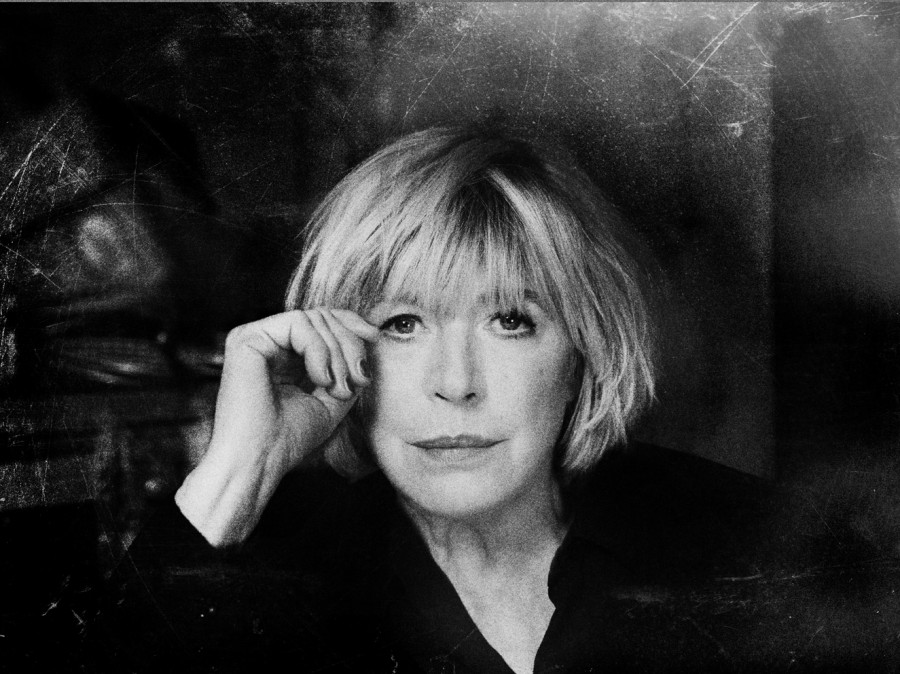In many classic stories, there comes a point where someone speaks from the corner and changes everything. A stranger reveals the secret that solves a mystery; a minor character finally unburdens herself, and her words reconfigure the plot. Marianne Faithfull‘s music comes from that place of shadow and revelation. In 50 years as a player in rock’s history, the 67-year-old singer-songwriter has evolved from mod muse to punk survivor, from fecund ingenue to still-sexy crone, from the object of men’s fantasies to the furiously authoritative subject of her own ongoing autobiography. Whether in her own compositions, like the title track of her classic 1979 album Broken English, or in her authoritative interpretations of work by songwriters ranging from Jagger and Richards to Patti Smith to Colin Meloy, Faithfull has spoken for the unnoticed, the vengeful and the oracular. “You don’t know in hell who’s talking,” she spat, speaking for literature’s greatest murderous barmaid, in her 1996 version of the Brecht/Weill classic “Pirate Jenny” — a song she mentions fondly in Give My Love To London‘s title track. Marianne Faithfull will always let you know.
Conceived and mostly written while Faithfull convalesced from a serious back injury sustained in 2013, Give My Love To London gives life to a host of new corner characters. There’s Mother Wolf, the mythical creature decrying the cruelty of civilized man, in the fierce dirge she cowrote with Leonard Cohen‘s current producer, Patrick Leonard, and the child whose gaze reveals the “unholy mess” of the 21st century in “Sparrows Will Sing,” by Roger Waters. Faithfull takes on the role of rueful tour guide twice: in the playful title track, written with Steve Earle, and in Nick Cave‘s “Late Victorian Holocaust,” which recalls the David Bowie of Diamond Dogs. These dystopias feel prophetic — if this version of Faithfull were a figure from popular fiction, she’d be Catelynn Stark in Game Of Thrones, bloody and cold and wandering. But there’s fire in Faithfull’s delivery, and it’s redemptive.
Give My Love To London also spends plenty of time on the underside of romance, especially in the songs she cowrote. One of its most intense rockers, “True Lies,” shows that Faithfull’s timeworn alto can still go full force; when she sings, “You ran me round too many times,” you feel as if you can taste the arsenic in her lover’s cup. “Love More Or Less” is much sweeter, a longtime wanderer’s lament that could have appeared on Bob Dylan‘s Nashville Skyline. Another quiet high point is “Deep Water,” co-written with Cave. Its reckoning with loneliness comes calmly, riding on soft strings and piano lines, as Faithfull murmurs her sorrow with sad simplicity.
As one of rock’s most beloved elders, Faithfull always surrounds herself with musicians who clearly feel honored to work with her, and thus bring their best. On Give My Love To London, her core band of Ed Harcourt on keyboards, Adrian Utley on guitar and Warren Ellis on multiple instruments offers Faithfull the full range of dynamics, from gentle ballads to Bad Seeds-style blues. She has no problem finding her center in any of these settings; no matter what trappings her accomplished friends provide (others include producers Rob Ellis and Dimitri Tikovoi, Anna Calvi, Brian Eno, The Clash‘s Mick Jones, and Flood), Faithfull defines the proceedings with her insightful, passionate vocals. Twenty albums in, Marianne Faithfull can still spin the kind of tale that silences a room, then fills it with something unexpected.
9(MDAxNzk1MDc4MDEyMTU0NTY4ODBlNmE3Yw001))
First Listen: Marianne Faithfull, 'Give My Love To London'

Artist: Marianne Faithfull
Album: Give My Love To London


